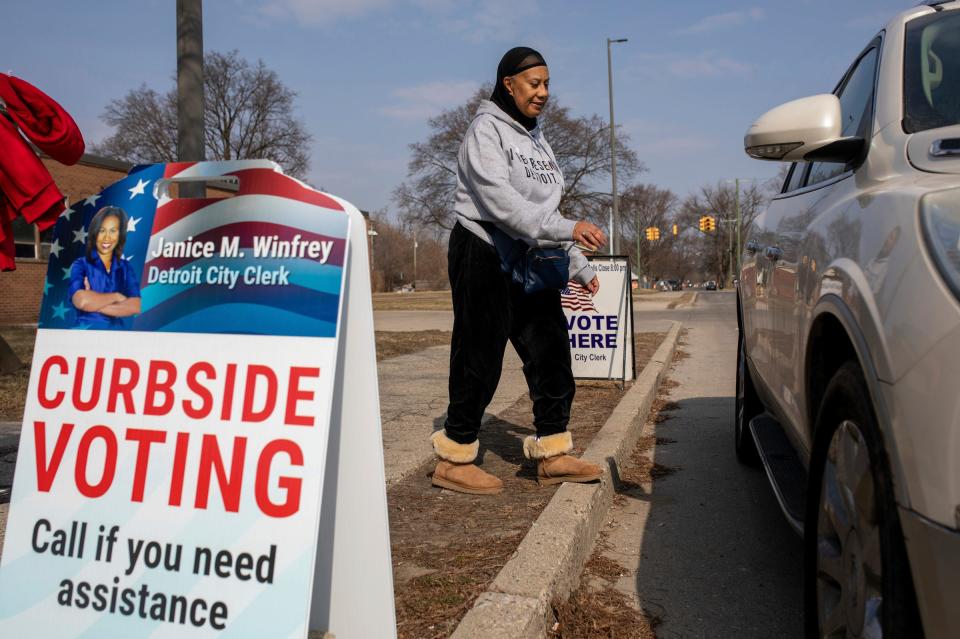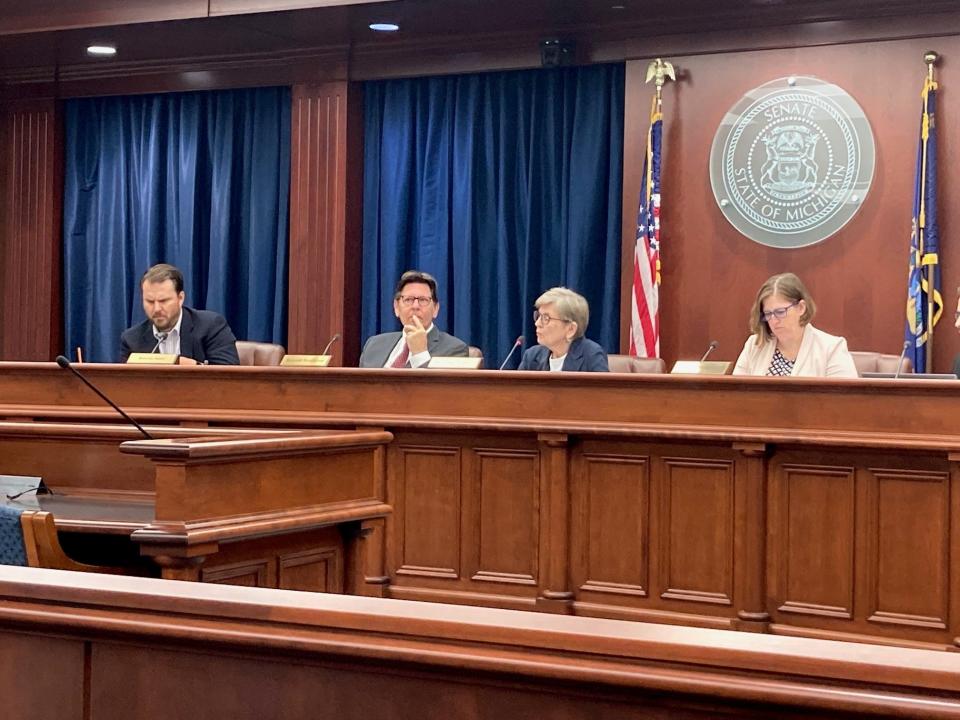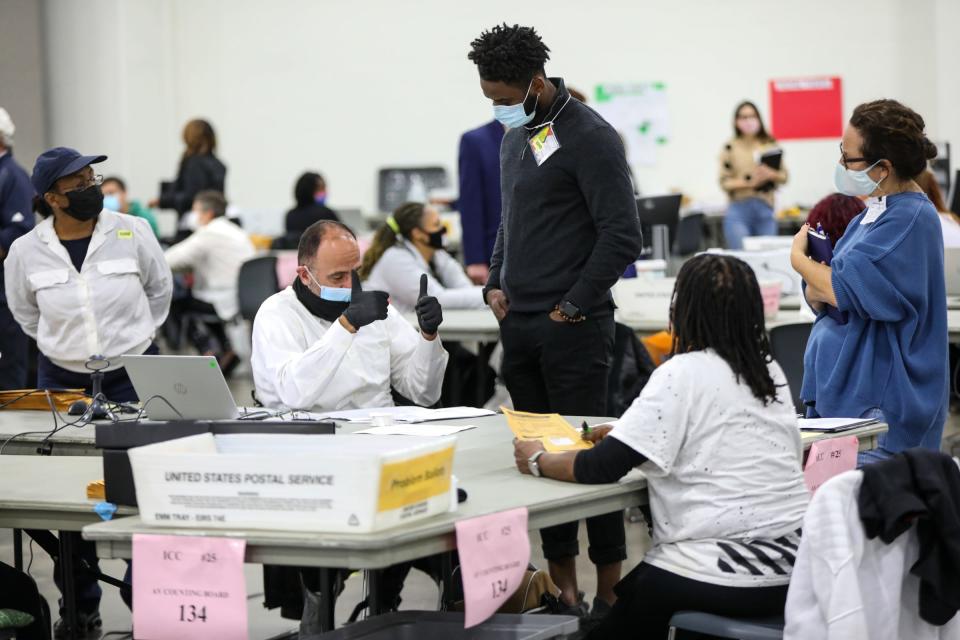Election officials complaining about Michigan recount law see proposal to overhaul it
Recounts of Michigan ballot proposals in 2022 did not include a review of enough votes to change any election outcomes. But they left taxpayers with a hefty bill and election officials clamoring for changes to the law.
Bills passed by Democrats in the state Senate Tuesday would require recount requests to petition for a review of a greater number of votes than the margin by which a candidate or ballot proposal lost. The legislation would also increase the upfront payment aggrieved candidates and ballot question committees must make and ease the restrictions that have excluded a significant number of votes from past recounts. The legislation next heads to the state House for consideration.
The proposed overhaul of Michigan's recount law with several months until the presidential election garnered unified GOP opposition, limiting the chances it could take effect before the contest if Gov. Gretchen Whitmer has a chance to sign it into law. Republican lawmakers who spoke out against the legislation on the Senate floor argued it would diminish voters' trust in elections by stripping away the authority from the bipartisan boards that certify election results to investigate potential election fraud during a recount.

State Sen. Stephanie Chang, D-Detroit, who sponsored the main bill in the package countered that those canvassers have never had that legal authority. But to settle the debate, the legislation would make clear recounts cannot open the door to wide-ranging investigations into the conduct of an election.
Clarify definition of recounts
In 2022, ballot proposal recounts backed by groups that deny the legitimacy of the last presidential election prompted bipartisan backlash. It was not possible for the reviews of the votes cast on ballot proposals on abortion and voting rights to mathematically change the outcome, but they could still proceed under Michigan's recount law.
Members of the State Board of Canvassers blasted the recounts as frivolous at the time. "But if the statute provides that it is a right to waste that time and money, then we have to exercise that right," Democratic canvasser Mary Ellen Gurewitz said at a meeting to review the petition for a recount. GOP canvasser Tony Daunt described the review as a "fishing expedition" and called it "poisonous to our system." Both officials rejected rebuffed repeated calls to use the recounts to launch a broader investigation into the election.

Senate Bill 603 passed by the Senate would clarify that a recount is not investigation or election audit, and that canvassers who receive a petition calling for one should deny it.
Out of balance precincts
The bill would allow recounts of precincts that have a mismatch between the number of ballots and the ballots issued to voters recorded in a polling place's log or the ballots that were tabulated.
Michigan election law broadly prohibits recounting so-called "out of balance precincts" that don't report an explanation for why the number of ballots recorded in the pollbook does not match the number of ballots tabulated.
Michigan's recount law became a flashpoint in the last presidential election when Republican members of the Wayne County Board of Canvassers pointed to the number of out of balance precincts in Detroit when they initially refused to certify the results.

Out of balance precincts are common across the country, but Michigan's recount law stands out as particularly strict when it comes to barring these precincts form a recount. Chang introduced legislation to include out of balance precincts in a recount after a recount in the 2017 Detroit city clerk's race had to exclude thousands of votes from the review. The 2020 election prompted new calls for change to the law.
Increased deposit fees, new criminal penalties
Chang's legislation would also double the deposit fees for filing for a recount and require adjustments in the future based on inflation which state Sen. Jim Runestad, R-White Lake, blasted as erecting financial barriers to seeking an election review.
Once a recount begins, the legislation would create new criminal penalties for those who try to interfere in the process. Senate Bill 604 passed by the Senate would make such interference a felony punishable up to five years' imprisonment. The law currently applies only to officers, assistants, clerks or employees.
The 2022 recounts saw scattered disruptions. A challenger observing the recount in Marquette was ejected from the room after disrupting the recount with repeated requests to view the side of the ballot that didn't include the ballot proposals, according to information provided at the time by Michigan elections director Jonathan Brater.
Contact Clara Hendrickson at [email protected] or 313-296-5743. Follow her on X, previously called Twitter, @clarajanehen.
Looking for more on Michigan’s elections this year? Check out our voter guide, subscribe to our elections newsletter and always feel free to share your thoughts in a letter to the editor.
This article originally appeared on Detroit Free Press: Michigan bills to overhaul election recount law pass Senate
